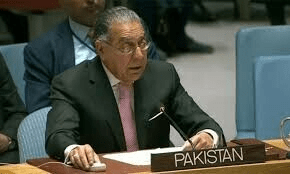Integration and secession — two seemingly contradictory forces — are currently at work in the European Union, dividing and sowing discord among nations in the 28-member bloc.
Further integration through more determined moves to pool and share sovereignty has emerged as the “Cri de Coeur” of some of the EU’s most ardent pro-Europe politicians.
These men and women believe that the EU should evolve into a real political and economic union — a quasi United States of Europe — rather than the complex and hybrid beast it is today.
The so-called “Euro-federalists” have become more vocal in the midst of the Euro crisis, believing as they do that only a strong and cohesive EU can stand up to the demons which continue to haunt the single currency project.
But even as the clamour for more integration grows louder ahead of elections to the European Parliament in May this year, at least two EU states – Spain and Britain – face a real threat of secession of two of their major component parts: Catalonia and Scotland.
In a referendum to be held on Sept 18, registered voters in Scotland will be asked the question: “should Scotland be an independent country?” They will have a straight choice between “yes” and “no”.
Meanwhile, Catalonia’s President, Artur Mas, has written to EU leaders and world powers seeking their support for a vote in November on independence from Spain.
Catalan secessionists, whose ranks have swollen during the recession, say their region has long suffered economic and cultural discrimination by the rest of Spain. Their movement is marked by a strong pro-Europe sentiment; many say they would like to see an independent Catalonia inside the EU.
The Scottish government also argues that, in the event of a “Yes” vote, Scotland would remain part of the EU and negotiate its membership terms “from within”.
There are important differences, however. Currently, opinion polls indicate that around 55 per cent of Catalans want to leave Spain. In contrast, less than a third of Scots want to leave the United Kingdom.
Also, while British Prime Minister David Cameron and Scotland’s First Minister Alex Salmond are haggling over details of the September vote, there is no doubt that the referendum will go ahead as scheduled.
In Madrid, however, the government of Mariano Rajoy has responded to the announcement of a planned referendum in Catalan on Nov 9 with a flat refusal.
Backed by the opposition Socialists, Prime Minister Rajoy insists that Spain’s 1978 constitution does not allow for such a vote. “Any discussion or debate on this is out of the question,” according to the Spanish leader who says such a referendum would breach the Spanish constitution.
When Mas told the media last month that separatist parties had agreed on the referendum questions and on its “consultative” rather than legally binding nature, the Spanish justice minister, Alberto Ruiz-Gallardon, said: “The poll will not be held.”
But for his part, the charismatic Catalan leader believes he has both the mandate and the legal means to secure a vote — a point he made in a recent letter sent to German Chancellor Angela Merkel.
Mas also pointed out that Catalonia — which accounts for more than 20 per cent of Spain’s GDP — is wealthy enough to be a net contributor to the EU budget. Similar notes have been sent to the EU’s 26 other capitals and to 45 leaders of non-EU states.
“Catalans are deeply pro-European and we do not imagine a future outside the European Union,” said Mas in a recent article. The questions they will be asked in November would be “Do you want Catalonia to become a state?” and, in case of an affirmative response, “Do you want this state to be independent? Yes or No.”
Mas and Salmond are clearly hoping that Catalan and Scotland will remain part of the EU even if they secede from their nation states.
That’s in no way clear, however, with several leading EU officials warning that an independent Catalonia and Scotland would need to go through a complex negotiation and accession process in order to be part of the EU again.
Lord Robertson, a former Nato secretary general, has warned that Scottish independence could trigger the “re-Balkanisation” of Europe, adding that the global balance of power would be “substantially upset”.
Separatist movements in Belgium, France and other countries may also succeed in breaking away, he said, leading to a more fragmented Europe that is more unstable and more likely to produce “strife and dissension”.
Similar fears have been voiced by William Hague, the British Foreign Secretary who has said both Scotland and the remainder of the UK would be “diminished” on the world stage.
As the rest of the EU watches and waits for the votes in autumn, however, neither Mas nor Salmond appear to be listening mode. The writer is Dawn’s correspondent in Brussels.














































Dear visitor, the comments section is undergoing an overhaul and will return soon.